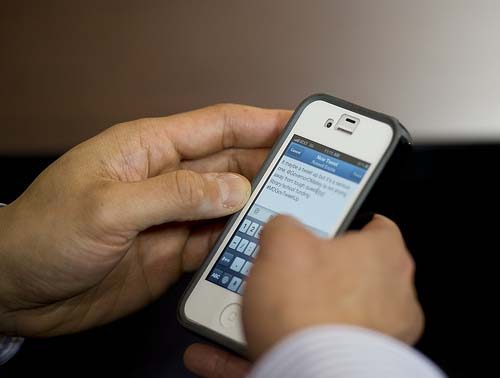
Gulf neighbors Kuwait and Bahrain are looking to strengthen regulation of media, especially social media, as both countries feel the bite of online freedom of speech.
In Bahrain, the government has frequently sought to squelch dissent from journalists and opposition activists as it spends million of dollars to control public perception. Its latest move is to appoint Sameera Rajab to be Bahrain’s new Minister of State for Information Affairs, with the task of introducing stricter laws to curb “media misuses,” including on social media websites.
Kuwait, meanwhile, has recently seen several scandals over tweets deemed blasphemous or inflammatory. The country’s information minister, Sheikh Mohammad al-Mubarak Al-Sabah, said yesterday:
“The government is now in the process of establishing laws that will allow government entities to regulate the use of the different new media outlets such as Twitter in order to safeguard the cohesiveness of the population and society.”
This as Twitter prepares to launch an Arabic-version of its service, which would likely lead to an increase in users from the Gulf region.
Saudi Arabia last year tightened its own regulation of media, threatening fines and closure for publications that “causes harm to the general interest of the country.”
Qatar’s has long been mulling over its own new media law, but few details have emerged.
Last year, bullet points from a draft law were circulated, saying online publications would not require government licensing, although print publications – and their editors – would have to be vetted by the Ministry of Arts, Culture and Heritage.
Hamad bin Abdulaziz Al Kuwari, the Minister of Arts, Culture and Heritage, last March reiterated that journalists would not face jail time for defamation, but said social media would be covered under Qatar’s pending media law as “it is the most important form of free expression in the present world.”
All in all, not looking good for media freedom across the Khaleej.
What do you think?
Credit: Photo by MDGovPics







